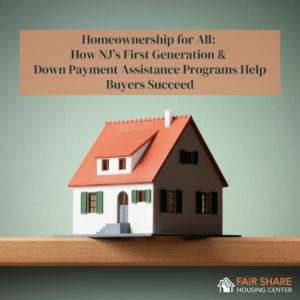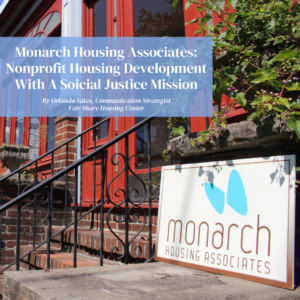Addressing Racial Wealth Disparities in NJ Must be a Priority in 2022
January 18th, 2022
By James Williams, Director of Racial Justice Policy
In 2021, Governor Murphy established a Wealth Disparity Task Force to address New Jerseys glaring racial disparities between white people and people of color. This Task Force looks to address wealth disparities through five working groups: housing, education, economy, criminal justice, and health care. New Jersey represents what Dr. King famously identified as the two Americas; tremendous wealth coupled with startling poverty. Some areas in the state are the wealthiest communities in the nation. New Jersey’s nickname of the Garden State is often changed to the Big Suburb. Many athletes and celebrities call New Jersey their home, building lavish and beautiful homes while being mere miles away from communities that live well below the national poverty line.
The need for this Task Force was long overdue. The hope is that the Task Force will not be a token gesture by this administration but a provided opportunity to provide concrete recommendations that address the needs of New Jerseyans, particularly communities of color. Communities of color are alarmingly the most impacted by wealth disparities in the state. Net asset worth (NAW) estimates have calculated that the NAW of white families is over $350,000, while Black and Latino families only amass an alarming $6k and $7k respectively. With such a stark contrast between white people and people of color, the working groups of the Task Force must work diligently to address this issue.
Resolving wealth disparities will require a comprehensive approach that tackles the systematic factors that has led our “progressive” blue state to mirror the racial disparities of the deep south. How did New Jersey find itself in this dilemma? The answer is not as complicated as most would think. New Jersey was the last northern state to ratify the 13th amendment. New Jersey currently ranks first in the nation for racial disparities for both adult and youth incarceration rates between Black and whites, and is in the top ten worst states for white and Latino disparities too.
With this Task Force, New Jersey has a unique opportunity to dig deep and come up with meaningful recommendations for short- and long-term measures that will address wealth disparities for New Jersey residents. Removing the systematic barriers that have made certain communities poverty deserts will take time, but that does not mean immediate measures cannot be enacted.
From a housing perspective, the Fair Chance in Housing Act serves as one the most intersectional pieces of legislation that this state has passed in some time. If properly implemented and enforced it will impact housing access, civil rights enforcement, criminal justice reform, health outcomes, and public safety. The idea of creating wealth through housing access is not new. When service members returned home after WWII, white service members were able to take advantage of their VA loan while Black service members were denied. This barrier to housing is just one example of how such racially discriminatory practices can keep generations from gaining wealth. Many of the homes purchased by WWII veterans have gained equity and now serve as the bedrock for their family’s financial wealth to this day.
New Jersey can no longer address racial disparities with surface level attempts to pacify affected communities. We must make the same long-term investments in rebuilding these communities as this state has made to fortify its wealthiest residents.






